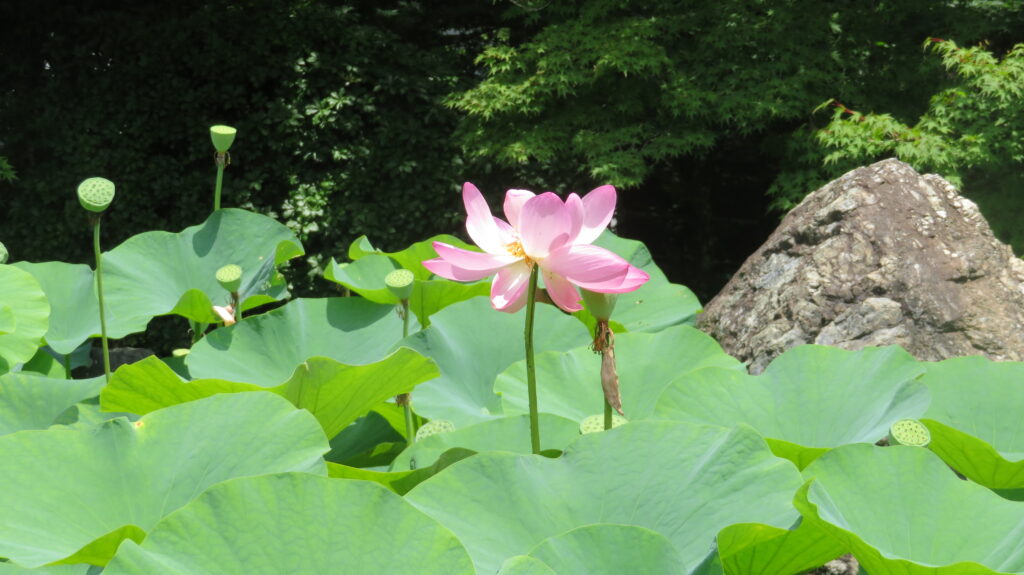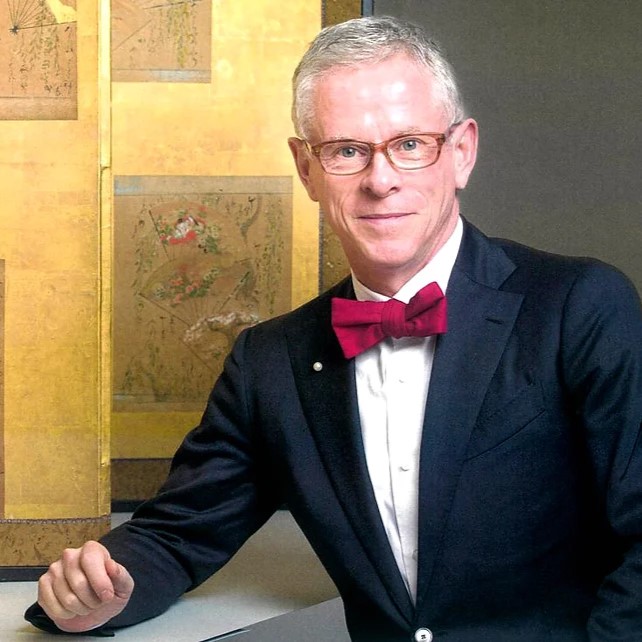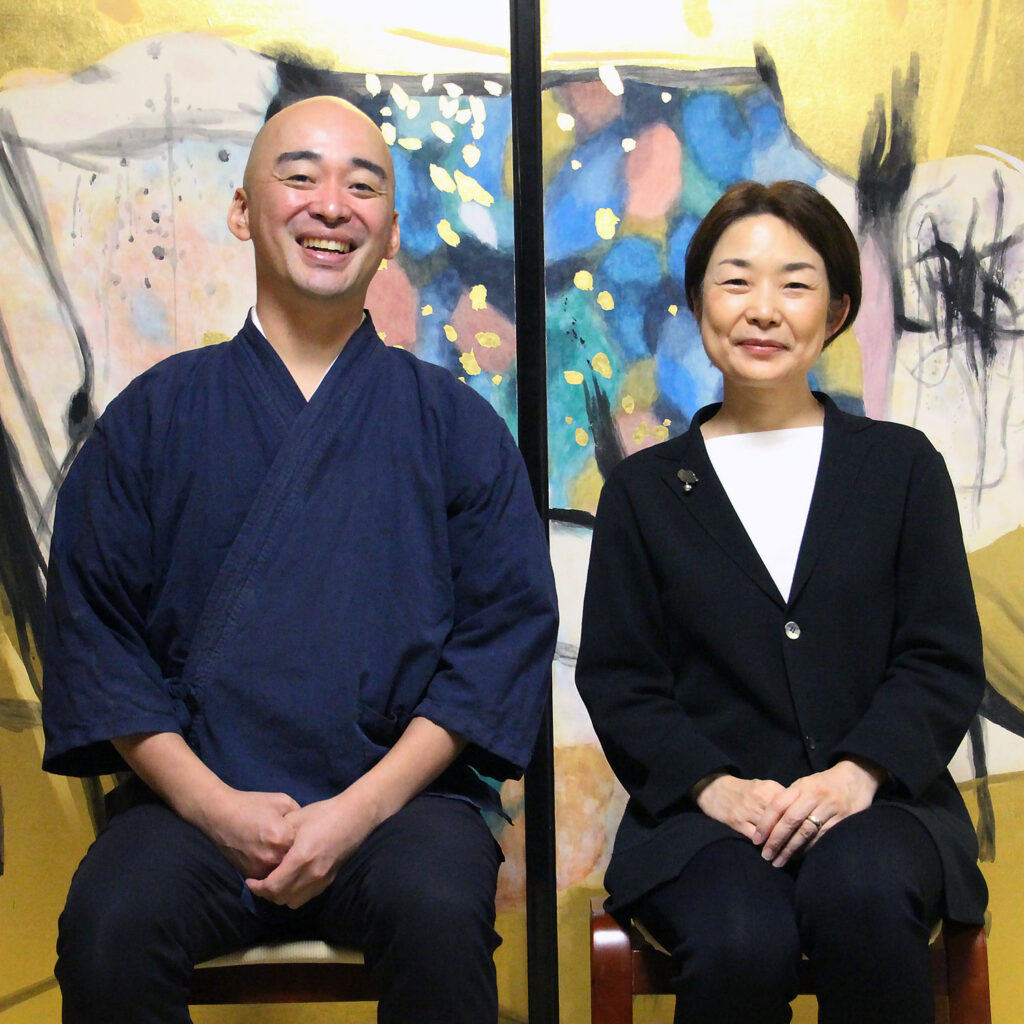2024.8.20
Winds of Gold—One Hundred Views of Saihoji Vol. 4
Peter MacMillan / a translator, scholar, poet
In this series of essays on Saihoji the renowned translator of Japanese poetry and poet Peter MacMillan records his impressions of and reflections on his visits to the garden throughout the four seasons. We hope that through these essays you the readers and fans of Saihoji can feel as if you are also present in the magical garden even when you cannot visit us.
Changing, Unchanging Moss Garden
I am visiting Saihoji today with a young guest. He is back to Japan for a visit from Czech where he is studying medicine. He told me that a dear friend had said to him that she wished he would stay in Japan and be close to her. But he decided to pursue his dream to study overseas and become a doctor. I recalled the poem by Minamoto no Sanetomo written in the 13 th century from the One Hundred Poets, One Poem Each:
That such moving sights
would never change—
Fishermen rowing
their small boats,
pulling them on to shore.
The poem describes a lovely scene that the young poet Minamoto no Sanetomo
loved and his wish that it will not change. The same poet was assassinated in his
20’s and thinking of that makes the poem seem even more poignant.
In this age we live in it seems we constantly long for change, for new things, for
new stimulations, driven by the incessant demands of social media, advertising and
the consumer society we live in. So perhaps it is hard to identify with the poem by
Sanetomo, but when I think of what my young guest today told me, I realized that the
wish for things to remain unchanged is a universal wish that remains the same today
as in the time of Sanetomo.
Saihoji is my place that never changes. It is a garden of the simplest elements— moss, trees, rocks, water and light. There are few flowers and no excessive decoration. And though the garden is constantly manicured and taken care of by several gardeners, everywhere feels as if we are in a patch of unadorned nature, pristine and pure. Thus, Saihoji is a kind of unchanging sounding board for me, an ancient green mirror in which I can measure and reflect upon myself.

But is it unchanging? Not at all. The garden though always the same, is constantly changing. Today because it is the height of summer, the sounds of the cicadas are so loud and rich, thronging like a pulse that fills the garden, a sound not heard in the winter or spring. And the lotus flowers are in full bloom in the little pond near the Main Hall. These lotus seeds are from ancient stock, some 2,000 years old. But every year they bloom anew.
That is the image of Saihoji that I would like to hold dear—an ancient unchanging place that also is changing with each year and each season and day and each hour of the day— like the lotus blossoms that are blooming beautifully to the chorus of cicadas for my friend who traveled from afar to see them.
And as I prayed for the success of my young guest’s medical career, I knew that though he will face a life of constant challenges and change, he will always treasure his true heart and that that part of him will forever remain the same.
Peter MacMillan
Peter MacMillan is a prize-winning translator, scholar, poet, and President of The Moon is a Boat Co., Ltd.
His translation, One Hundred Poets, One Poem Each (Hyakunin Isshu), was published in 2008, winning prizes in both Japan and the United States. After that, he completed an English translation of The Tales of Ise (Ise Monogatari), which was published by Penguin in 2016. He has also published a collection of poetry entitled Admiring Fields.
Awards:
Recipient of the Donald Keene Center Special Prize for the Translation of Japanese Literature
Recipient of the 44th Special Cultural Translation Prize from the Japan Society of Translators
Nominated for the PEN Award for Poetry Translation for the English translation of The Tale of Ise (Ise no Monogatari)







